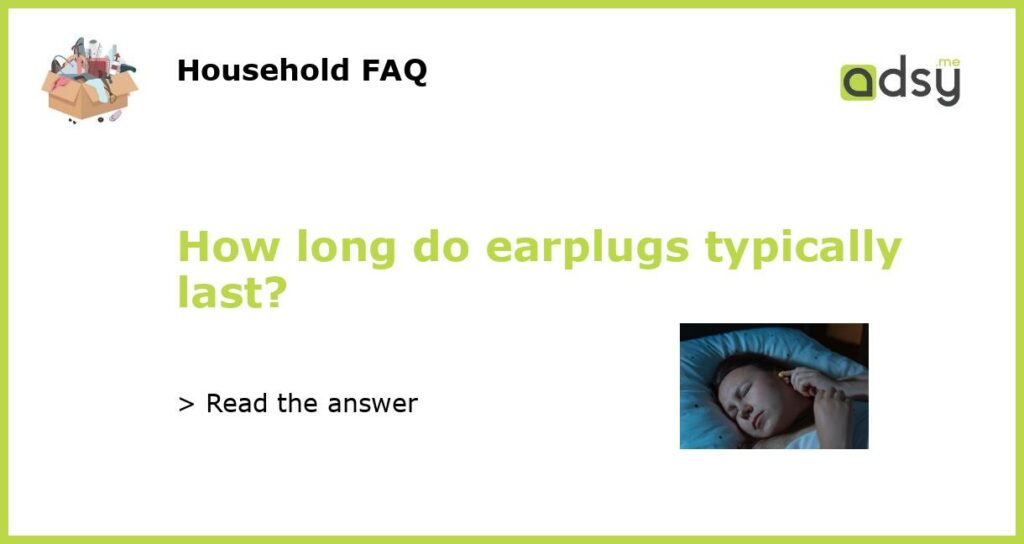What are earplugs and why do we use them?
Earplugs are small devices made of foam or silicone rubber that we insert in our ears to block out unwanted sounds or protect our sensitive ears from loud noises. We use them to get a peaceful sleep, concentrate in noisy environments, protect our ears while swimming, and prevent hearing damage from loud music or industrial noise. With a growing awareness of the importance of maintaining our hearing health, more and more people are turning towards earplugs as a convenient solution.
Factors that affect the lifespan of earplugs
The lifespan of earplugs depends on various factors like the material used, the frequency and intensity of use, the level of maintenance, and the storage conditions. Foam earplugs, for instance, are disposable and need to be replaced after every use or after using them continuously for a week or two. Reusable silicone earplugs, on the other hand, can last for several months if cleaned regularly with mild soap and water and stored in their case after every use. Similarly, earplugs may deteriorate faster if exposed to heat, moisture, sweat, or chemicals from skin lotions or other products.
How long do earplugs typically last?
As we mentioned, the lifespan of earplugs varies depending on various factors. However, here is a general estimate of how long you can expect them to last:
- Disposable foam earplugs: 1-2 uses or up to a week of continuous use.
- Reusable silicone earplugs: Several months up to a year or more.
- Custom-made earplugs: 3-5 years with proper maintenance and storage.
How can you tell when to replace your earplugs?
As a general rule, it’s recommended to replace foam earplugs every day or after every use, and silicone earplugs every few months or when they become visibly dirty, sticky, or deformed. Remember that earplugs are meant to provide a snug but comfortable fit, so if you notice that they don’t fit well anymore, it’s time to replace them. Similarly, if you notice that they don’t block out noise effectively, it’s a sign that they have lost their efficacy and need to be replaced. Using earplugs that are worn out or do not fit well can actually do more harm than good, as they may irritate your ear canal or fail to protect your ears from loud noise.
Final thoughts
Earplugs are a handy tool to protect your hearing and improve your quality of life, but it’s important to use them correctly and replace them when they wear out. By investing in high-quality earplugs, taking good care of them, and being mindful of their limits, you can enjoy their benefits for a long time without compromising on your ear health.






